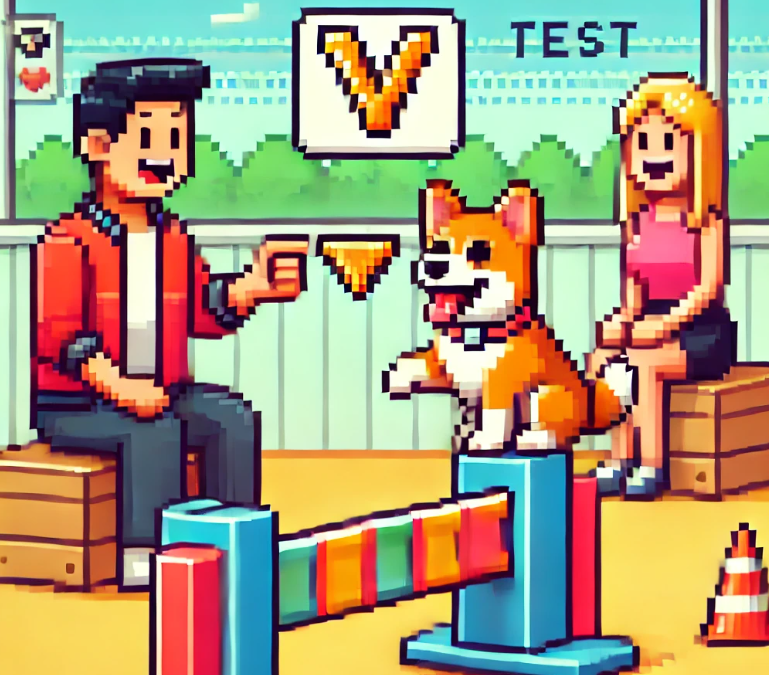
Understanding Dog Behavior Through Cognitive Tests
As a pet owner, you may often wonder what goes on in your dog’s mind. Why does Fido seem so impulsive, or why is Bella so easy to train? Recent research sheds light on these questions, revealing how cognitive traits in dogs can predict their daily behavior. This groundbreaking study delves into the connection between dogs’ cognitive test results and their everyday actions, offering valuable insights for pet owners and trainers alike.
The Study at a Glance
Researchers aimed to explore whether cognitive traits measured in a controlled test environment correlate with dogs’ behavior in their daily lives. Using nearly 1,000 dogs and two validated owner-completed questionnaires, the study examined various cognitive traits like social cognition, inhibitory control, and logical reasoning. The findings suggest that cognitive tests can indeed predict behaviors such as trainability, impulsivity, and problem-solving abilities in real-life situations.
The Key Cognitive Tests
- Cylinder Test: Measures inhibitory control. Dogs must resist the impulse to go straight for a visible treat inside a transparent cylinder and instead reach it by detouring around the barrier.
- V-detour Task: Assesses spatial problem-solving ability. Dogs must navigate around a V-shaped fence to reach a treat.
- Unsolvable Task: Evaluates social cognition and problem-solving persistence. Dogs are presented with a puzzle box that becomes unsolvable after a certain point, measuring how long they seek human help versus trying independently.
- Logical Reasoning Task: Tests the ability to make inferences. Dogs are shown two bowls, one empty and one potentially containing a treat, and must infer where the treat is hidden based on the information given.
Linking Tests to Real-Life Behavior
Inhibitory Control and Trainability: Dogs that performed well in the Cylinder Test, indicating high inhibitory control, were rated by their owners as more trainable. This means they were better at obeying commands like “sit” or “stay” and were less impulsive. High inhibitory control also correlated with fewer behavior problems, such as stealing food or chewing on forbidden items.
Problem-Solving and Management Issues: The V-detour Task results showed that dogs who quickly solved the task tended to have more management issues, such as pulling on the lead or escaping from the yard. This might suggest that highly active and explorative dogs, while smart, can sometimes be challenging to manage without proper training.
Social Cognition and Anxiety: In the Unsolvable Task, dogs that sought human help were generally rated as more trainable but also exhibited higher levels of stranger-directed fear. This highlights the dual nature of social cognition in dogs: while it aids in training, it may also reflect underlying anxiety.
Learning Speed: Dogs that struggled with the Logical Reasoning Task were often reported by their owners as slow learners. This link between cognitive test performance and learning ability can help identify dogs that might need more patience and tailored training methods.
Implications for Pet Owners
Understanding these cognitive traits can significantly improve how we train and interact with our dogs. For instance, if your dog has low inhibitory control, more structured training might help curb impulsive behaviors. Recognizing a dog’s tendency to seek human help can also be a cue to provide more supportive and confidence-building exercises, especially for anxious dogs.
Practical Tips for Dog Owners
- Tailored Training: Use the insights from cognitive traits to customize your training approach. For impulsive dogs, focus on exercises that enhance self-control, such as waiting for a treat or playing impulse-control games.
- Encourage Problem-Solving: Give your dog puzzle toys or engage in activities that stimulate their problem-solving abilities. This not only keeps them mentally active but also reduces behavior problems stemming from boredom.
- Address Anxiety: If your dog shows signs of anxiety, particularly around strangers, gradually expose them to new people and environments in a controlled, positive manner. This can help build their confidence over time.
Let us know your experiences in the comments!
- Behavioral Traits: Have you noticed any specific behaviors in your dog that might be explained by their cognitive abilities? Share your observations and any strategies you’ve used to address these behaviors.
- Training Techniques: What training methods have you found most effective for your dog? How do you think understanding your dog’s cognitive traits could enhance your training approach?




